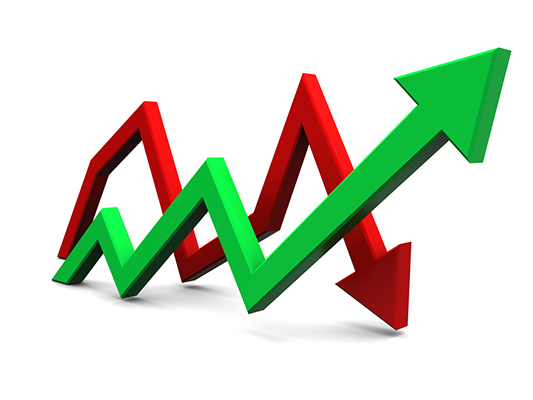Beneath the surface of the stock market lies a hidden world filled with secrecy and dark secrets. In this article, we will delve into the lesser-known aspects of stock market trading that are rarely discussed.
One prominent issue is insider trading, where individuals with privileged information use it to gain an unfair advantage in their trades. Market manipulation is another concern, as traders manipulate stock prices for personal gain, distorting market conditions.
High-frequency trading (HFT), characterized by lightning-fast trades executed by algorithms, has sparked controversy due to its potential for creating volatility and disadvantaging small investors.
Front-running involves brokers or traders prioritizing their own profits by executing orders ahead of their clients at better prices. Dark pools, private exchanges where large institutional investors trade away from public scrutiny, raise concerns about transparency and fair trading practices.
Algorithmic trading brings efficiency but can also lead to unintended consequences such as flash crashes.
By shedding light on these hidden aspects of stock market trading, we aim to promote transparency and fairness in financial markets. Understanding these issues is vital for implementing measures that foster trust among investors and pave the way for a more equitable investment landscape.
Shedding Light on the Problems within the Industry
The stock market has its share of flaws and limitations. One major issue is the overreliance on technical analysis, which can lead to poor investment decisions. Additionally, unethical practices like insider trading undermine market integrity and disadvantage regular investors.
Market manipulation further creates an uneven playing field, while inadequate investor education leaves individuals vulnerable to scams and uninformed decisions. Recognizing these problems is crucial for investors to navigate the complexities of the stock market effectively.
| Problem | Impact |
|---|---|
| Overreliance on technical analysis | Can lead to poor investment decisions |
| Unethical practices and manipulations | Undermines market integrity, puts regular investors at a disadvantage |
| Market manipulation | Creates an uneven playing field |
| Inadequate investor education | Leaves individuals vulnerable to scams and uninformed decisions |
The Secret World of Stock Market Trading
Beyond its surface, the stock market hides a secret world accessible only to a select few. High-frequency trading (HFT) is one such secret – sophisticated algorithms allow traders to execute lightning-fast trades, giving them an advantage over traditional investors.
Market manipulation is another dark side of stock market trading, where tactics like spreading false information impact stock prices. Furthermore, a hidden hierarchy exists, with institutional investors and hedge funds having access to resources and information that individual investors can’t match.
This imbalance creates an uneven playing field for retail investors. The secrets of the stock market reveal an intricate web of power dynamics and hidden practices that shape the realm of trading.
Your Formal Education is Worthless: What They Don’t Teach You About Stock Market Trading
A formal education in finance or economics may seem sufficient for success in the stock market, but it falls short in reality. The stock market is a dynamic and complex system that requires continuous adaptation and learning. Successful traders understand the importance of staying updated with industry trends, news, and developments.
Emotional intelligence also plays a crucial role in trading success, which is often overlooked in formal education programs. Real-world experience teaches traders valuable lessons about risk management and market psychology.
To truly succeed, traders must go beyond their formal education and actively seek out additional resources for ongoing learning and skill development.
The Risks and Limitations of Technical Analysis
Technical analysis in stock trading has its limitations. It relies solely on historical price data, overlooking factors like market sentiment and economic indicators. It cannot predict sudden market shifts or unforeseen events. Traders who solely rely on technical analysis may find themselves blindsided by unexpected movements.
There have been instances where technical analysis failed to provide accurate predictions, such as during the 2008 financial crisis. Recognizing these limitations is crucial for making informed investment decisions.
The Stock Market’s Dirty Secrets
Uncovering hidden secrets within the stock market industry reveals a darker side beyond its fair and transparent facade. One such secret is front-running, where brokers prioritize their own trades ahead of clients, taking advantage of insider knowledge or advanced trading systems.
Another dirty secret is pump-and-dump schemes, artificially inflating stock prices through false information before selling shares at a profit. These unethical practices erode trust in the market and harm individual investors. Regulators have made efforts to curb them, but they continue to persist in various forms.
It is essential for investors to be aware and protect themselves from falling victim to these manipulative tactics.
Technicals Gone Wrong: When Strategies Fail in Stock Market Trading
Technical analysis, while useful, is not foolproof. Even well-crafted strategies can fail due to unexpected news, market volatility, and the limitations of historical price data.
Traders should be open to exploring alternative approaches such as fundamental analysis and combining different methods for more informed decision-making in a dynamic market.
The Importance of Fundamental Analysis: Looking Beyond Technicals in Stock Market Trading
Fundamental analysis is essential for investors to gain a deeper understanding of the companies they invest in. By examining financial statements, industry trends, and economic indicators, investors can assess a company’s value and make informed decisions.
Unlike technical analysis that focuses on short-term price movements, fundamental analysis provides a long-term perspective. It helps identify undervalued stocks and avoid overvalued ones, leading to well-rounded investment decisions that consider both short-term trends and long-term prospects.
[lyte id=’Ffcdp4A4D0w’]






